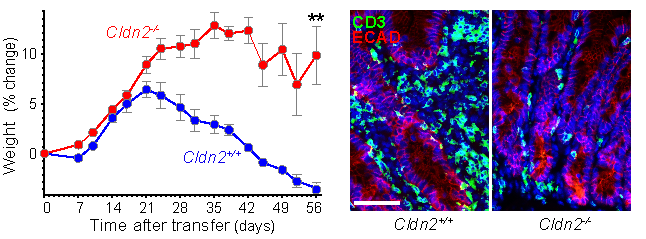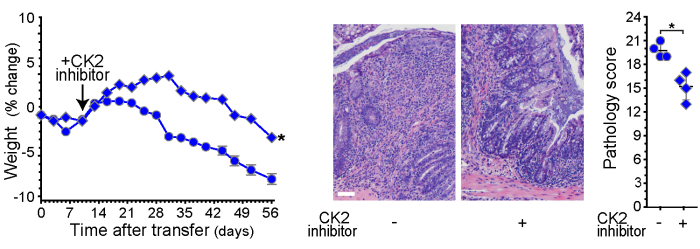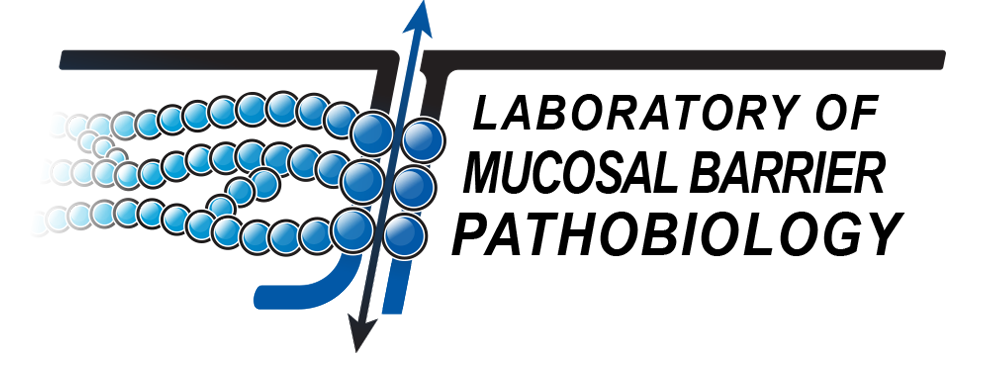Expression of the tight junction protein claudin-2 is frequently enhanced in disease, but the signficance of this exquisitely size-selective increase in water and small ion permeability to immune mediated disease has not been defined.
Previous work has shown that claudin-2-mediated Na+ and water efflux, i.e., diarrhea, are critical to effective clearance of enteric pathogens.
In a chronic, immune-mediated model of inflammatory bowel disease, severity was augmented or diminished in claudin-2 transgenic or knockout mice, respectively.
In vitro studies previously found that casein kinase-2 (CK2) inhibition inactivates claudin-2 channels. This study shows that CK2 inhibition also inactivates claudin-2 channels in vivo.
In experimental inflammatory bowel disease, CK2 inhibition markedly attenuated disease severity. This beneficial effect of CK2 inhibition was primarily due to claudin-2 channel inactivation, as inhibitor treatment had no benefit in claudin-2-knockout mice.
In contrast to infectious disease, claudin-2 channels therefore promote progression of experimental inflammatory bowel disease and are an attractive therapeutic target.




